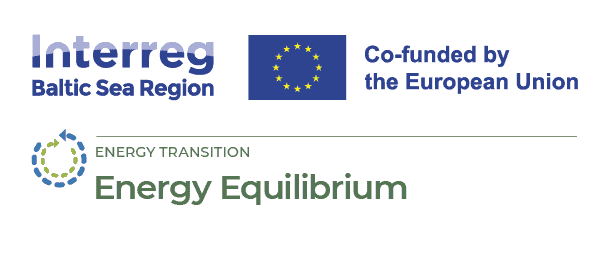
Municipal heat planning in Germany
19 December 2023
On November 17, 2023, the German Bundestag passed the law for heat planning and the decarbonization of heat networks. The law, also known as the Heat Planning Act, is intended to make a major contribution to the climate-friendliness of future heat supply.
Valid from January 2024, municipalities and cities with a population of more than 100,000 are obliged to create climate-friendly and affordable heat planning by June 30, 2026. For smaller municipalities, the deadline applies two years later, until June 30, 2028. Municipalities and communities with fewer than 10,000 inhabitants can also use a simplified procedure. The aim is to define whether future heat supply should be decentralized, via heating networks or using climate-friendly gases (biomethane, “green hydrogen”). Existing heating networks must be supplied with 30% of renewable energy or unavoidable waste heat by 2030, 80% by 2040 and 100% by 2045. New heating networks from 2024 must consist of 65% renewable energy or unavoidable waste heat.
Municipal heat planning is made up of three basic phases. In the first phase, the inventory analysis, the building types and the age of all buildings in the catchment area are analyzed and recorded. Existing heat and heating networks as well as existing heat sources are identified. This data is transferred to a digital map of the area.
The second phase, the potential analysis, consists of an investigation of the possible potential for heat production through renewable energies. The focus here is on arable land for the production of biogas, meteorological maps for the potential of solar thermal energy and geothermal analyzes for the geothermal potential. In addition, other heat sources such as waste heat from industrial plants or waste incineration plants are considered.
Then, in the third phase, the concept analysis, a scenario is developed as to what heat supply could look like in the future at the specific municipal level. A heating network is not the necessary result here. Although this offers great opportunities, especially for densely populated areas, individual solutions are often good alternatives for rural areas after weighing up the costs and benefits.
Since heat supply currently accounts for 50% of final energy consumption in Germany, the savings potential here is particularly great. Municipalities have to deal with heat supply and develop a concept for climate-neutral and affordable supply. This promotes the expansion of heating networks and strives for the goal of climate neutrality in the building sector.
However, the heat planning law can pose major challenges, especially for small municipalities. The shortage of skilled workers, including in the planning area, is a major obstacle and the financial strength of smaller communities is often very limited. Nevertheless, the step that the federal government has taken with this law is an important one in achieving the climate goals and climate neutrality by 2045.
A component that is not yet mandatory, but still relevant, for the development of a comprehensive strategy for future energy supply is the analysis of the effects that heat planning has on the development of the power grid and the associated infrastructure.
Investments in the electricity grid will be required. In the designated areas with decentralized heat supply, the priority use of building-based heat pumps means that a comprehensive expansion of the distribution network is essential in order to be able to accommodate the increased load volumes. This also includes the requirements for the expansion of photovoltaics and the charging infrastructure for electromobility. In the planned areas with heat pump-operated energy centers, the connection to the higher-level networks and the interaction of electricity generation, storage and consumption will be crucial for the success of the transformation of the heating sector.
Additional studies will therefore have to supplement municipal heat planning. “Energy Equilibrium” with the tool currently being developed and the planned road maps for individual municipalities can provide valuable inspiration in this regard.
This article was prepared by ZEBAU who are one of the partners in Energy Equilibrium project.
Photo source: ZEBAU GmbH





